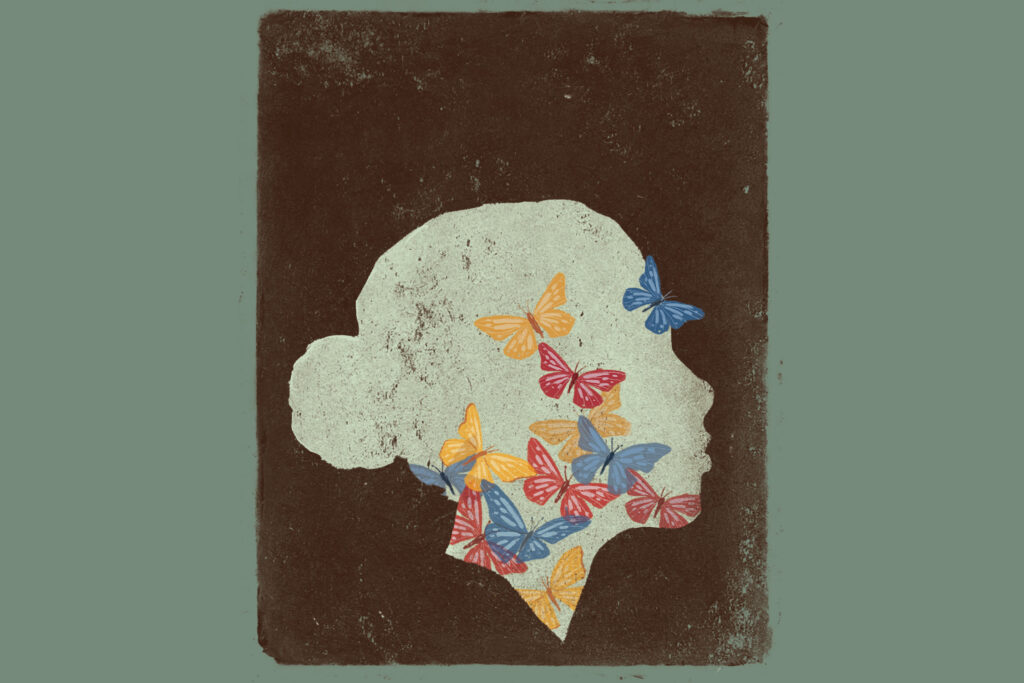Advertisement
Get Smart About Emotions
Cultivating emotional intelligence

The holiday season gives us a range of heightened emotions: a crackling fire can ignite deep contentment, hosting family and friends can inspire both excitement and anxiety, and the anticipation of the New Year can bring curiosity and optimism. With all these emotions in the holiday mix, it’s the perfect time of year to pay attention to, and nurture, our emotional intelligence.
Advertisement
What are emotions?
Let’s take a brief moment to define the word emotion. Perhaps you’ve thought to yourself, “Emotions are how we feel.” While this is certainly true, emotions are complex responses to situations or to ourselves that also affect how we think and behave, engaging both our bodies and our minds.
Advertisement
What is emotional intelligence?
Emotional intelligence refers to our ability to understand and effectively use our different emotions. According to Gill Hasson, a teacher, career coach, and author of Emotional Intelligence Pocketbook (Wiley, 2017), “It’s not so much about controlling your emotions, which implies that you restrain, suppress, or deny them.” Rather, it’s about “managing your emotions, which involves being flexible with your thinking, behaviour, and responses, and being open to stay with feelings—both pleasant and unpleasant.”
We can learn and practise emotional intelligence skills at any age or stage of life. This is good news, given that emotional intelligence is linked to better mental and physical health, and overall life satisfaction.
Hasson adds, “The extent to which you’re able to understand and manage your own emotions influences your ability to understand and manage other people’s emotions”—just what we need during increased time with family, friends, and colleagues over the holiday season!
Advertisement
Enhancing emotional intelligence
Make all emotions your allies
We often think of emotions as either good or bad, such as happiness versus sadness. However, all emotions are valuable in providing information about what we’re experiencing and what we might need.
Name them to claim them
One study found that putting feelings into words made sadness, anger, and pain less intense. Labelling our emotions without judgment creates distance from them and reminds us that they’re temporary. Keep in mind that we can feel more than one emotion at once; for example, feeling happy as we engage in holiday activities while sad as we acknowledge loved ones who are no longer with us to celebrate.
Use your body
Paying attention to our bodies can offer important emotional information. For example, a racing heart can let us know we feel anxious. To foster calm, try “half smiling”—a technique introduced by Dr. Marsha Lineham, founder of dialectical behaviour therapy. To half smile, relax your face and shoulders and slightly elevate the corners of your mouth (think of a Mona Lisa smile, which may feel more natural than a big toothy grin).
Smiling throughout the day (first thing in the morning, when irritated, while meditating, or simply when you have a free moment) is thought to create changes in the brain that can help us feel calmer and happier. Research also suggests that smiles really are contagious and can make those around us cheerier as well!
Explore the “why”
Once we’ve named our emotions and checked into our bodies, we can start to investigate why we might be feeling the way we’re feeling. For example, are we irritable because we’re overwhelmed, need support, or simply hungry?
We can explore the “whys” to practise empathy and understand others as well, asking ourselves: “Why might this person feel the way she does? What is she dealing with that I might not see? In what ways might she feel differently than I do?”
Herbs and supplements to support emotional wellness
Research suggests that emotional wellness can make us less susceptible to cold and flu; try the following suggestions, courtesy of traditional Chinese medicine practitioner Nicole Davies, to support emotional balance. Remember, always consult a health care practitioner before use.
Rhodiola rosea may improve mood and decrease stress.
L-theanine may improve sleep, as well as reduce stress.
Emotional intelligence and kids
What if we spent as much time teaching emotional intelligence as we did math or history? A recent study investigated 82 school programs that taught emotional intelligence to more than 97,000 students.
Participation was linked not only to immediate results, such as improved mental health, social skills, and learning outcomes, but also to long-term benefits, such as higher college graduation rates and lower rates of drug, behavioural, and mental health problems.
Although school is a great place to foster emotional intelligence, home is where emotional intelligence begins to bud. According to Melody Schalm, a social and emotional learning educator and founder of Kind Kids, “Emotional intelligence is a collection of skills that, like all skills, are trainable.” She adds, “It’s important to teach these skills as early as possible.”
Here are some ways to nurture emotional intelligence at home.
Storytime
Author Gil Hasson suggests pausing occasionally during storytime to discuss the characters’ feelings. For example, ask, “How do you think Jasper is feeling right now?” and “Look at Jasper’s face and body—how do these show that he’s feeling scared?”
Transience
Hasson suggests helping children understand that their feelings about a situation can change. (“Dale, I think you’re feeling sad right now and want to be on your own. But later you may feel differently, so you can come and join the other children then.”)
She also recommends teaching children that people may have different feelings about the same situation (“Genevieve is excited when there is a thunderstorm, but Anton gets scared”) and discussing why they think this might be.
Parental self-care
Schalm stresses that “our kids are sponges for our emotional states: if we’re stressed and anxious, chances are they are too.” Thus, she adds, “Nurturing our own emotional wellness is one of the most important things we can do.”
She suggests taking “mindful moments” during the day using the acronym “S-T-O-P.” That is: Stop, Take a deep breath (or two), Observe how you’re feeling, and Proceed. “Remembering to pause in the heat of a stressful situation can give us just enough space to prevent us from screaming at our kids or engaging in other unhelpful behaviours,” she says.
Increase your emotional vocabulary
Expanding our range of “feeling words” can help us more accurately articulate what we’re experiencing.
Are you sad?
Or are you gloomy, discouraged, disappointed, let down, sorrowful, hopeless, helpless, dejected, or lonely?
Are you happy?
Or are you content, pleased, joyful, excited, delighted, gratified, satisfied, comfortable, blissful, or ecstatic?
Are you angry?
Or are you annoyed, irritated, fuming, mad, frustrated, livid, cross, furious, exasperated, unfulfilled, or disturbed?





